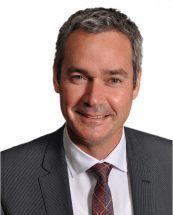
As authorities confront an increasingly localised terror threat a security expert is calling for greater council involvement in Australia’s counter-terrorism planning.
Councils play a role in minimising violent extremism and preparing for and responding to localised terror threats but local government is the “forgotten actor” in counter-terrorism planning, a leading expert says.
Authorities globally are confronting an insidious form of terror threats, often involving single attackers targeting crowded public places.

Anthony Bergin, a senior analyst at the Australian Strategic Policy Institute and the National Security College, says local government needs to be better involved in counter-terrorism planning and terror prevention and recovery, particularly in rural and regional areas.
“There is no doubt that terrorist attacks will occur in local government areas,” Dr Bergin told Government News.
Given the history of mass-casualty terrorist attacks on “soft targets”, it is critical Australia looks to protect such venues and spaces, many of which are in our rural areas, he said.
Dr Bergin says the 2016 attack in Nice, which killed 86 people, showed it was not always capital cities that were the location of attacks.
“When you get out of Australia’s major cities, local government is really the primary governance actor in many of its regional areas.”
Councils’ role ‘overlooked’
Despite the inclusion of a self-assessment tool for local government to assess risk of terrorism in public gatherings in the Commonwealth’s strategy to protect crowded spaces, released in August last year, councils are still overlooked in broader federal planning, Dr Bergin says.
“Too often security agencies and police have failed to engage local government in issues around protective security. The forgotten actor here is local government. When it comes to consequence management, resilience lives locally, so the importance of local government should not be overlooked,” he says.
David O’Loughlin, president of the Australian Local Government Association, says the crowded places strategy makes it clear that councils have a duty to take all reasonable steps to prevent harm at public gatherings, requiring them to make a risk assessment before signing off on events.
Australia’s Strategy for Protecting Crowded Places from Terrorism is an important part of our plan to keep Australia safe. Watch more below pic.twitter.com/OJoSTvBiIV
— Malcolm Turnbull (@TurnbullMalcolm) August 21, 2017

While he says the strategy will “strengthen” the capability of councils to undertake risk assessments of crowded places, he argues the Federal Government needs to recognise councils’ limited financial capacity.
“It would also be helpful if the Commonwealth became more aware of the capacity constraints we are under in terms of adopting new initiatives such as this,” Cr O’Loughlin told Government News.
“The range of external financial impositions or restrictions that apply to local government, including and particularly rate capping, restrict our ability to serve and protect our communities at times of need such as this,” he says.
In June, the City of Ryde submitted a motion calling on the State and Federal Government to fund councils to enact their responsibilities in the National Counter-Terrorism Plan 2017 and the crowded places strategy.
Dr Bergin also says the current level of responsibility of local government in counter-terrorism planning is “unclear.”
Councils are not mentioned in the 2015 COAG national counter-terrorism strategy, he says.
“Australian counter-terrorism planners have been too complacent in having a conversation with local councils,” he says.
Key role for councils
ouncils are in a unique position to identify and respond to community needs both before terrorist attacks, in preventing violent extremism and preventing terror threats, particularly due to their role in approving mass gatherings, and after, in helping communities recover, Dr Bergin has argued in academic research.
“While the states have the primary responsibility for most emergencies, it is at the local level where responders will be first on the scene. It is local councils that will have to ‘pick up the pieces’ and rebuild the community after a terrorist incident,” he says.
A coordinated approach by local, state and federal government to countering violent extremism is necessary in the current security environment, Dr Bergin says.
He argues:
“By facilitating access to local government resources in areas such as health and welfare services, local councils can enhance the capability of community leaders to meet some of the challenges presented by extremism.”

Professor Roberta Ryan, director of the Institute for Public Policy, says that councils have a role in preventing violent extremism, responding to a terror event and facilitating terror recovery.
By supporting social cohesion and community integration local governments are a key player in preventing violent extremism, she said.
As the level of government best acquainted with local infrastructure, councils are critical in the first response to a terror incident, she says.
“Local government is often the first responder. They know where everything is. They have all the services which are really critical in disaster events. Local government knows these things right through to where critical infrastructure is,” Professor Ryan said.
Councils need to be included
Councils, particularly through their peak bodies, should be engaged in city and precinct, state and national counter-terrorism planning, Dr Bergin says.
“Wherever counter-terrorism planning is discussed, local government needs to be at table.”
Professor Ryan agrees that councils are a “key player” in the development of the state and federal government’s counter-terrorism strategies.
But more work needs to be done to identify the capability of councils in this area and how they can be better integrated into planning, Dr Bergin argues.
Related coverage: Agencies need better training on terrorism, says police commander
Comment below to have your say on this story.
If you have a news story or tip-off, get in touch at editorial@governmentnews.com.au.
Sign up to the Government News newsletter
